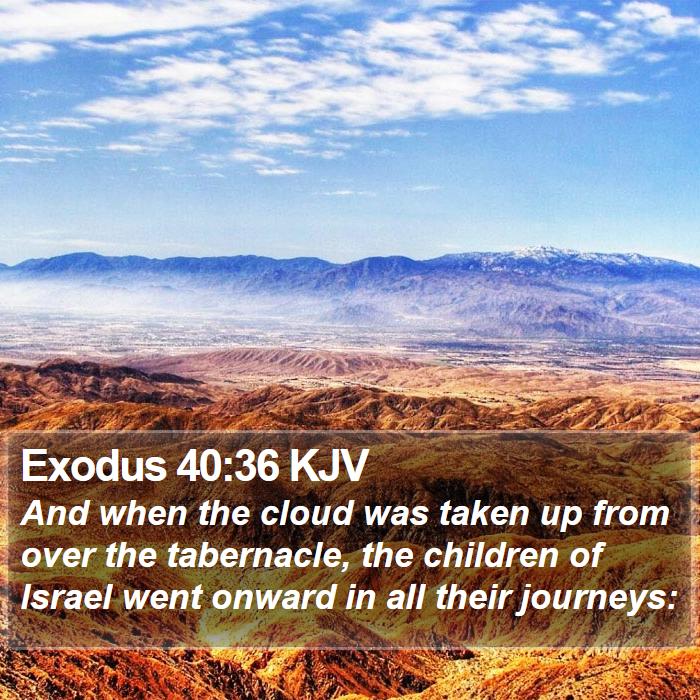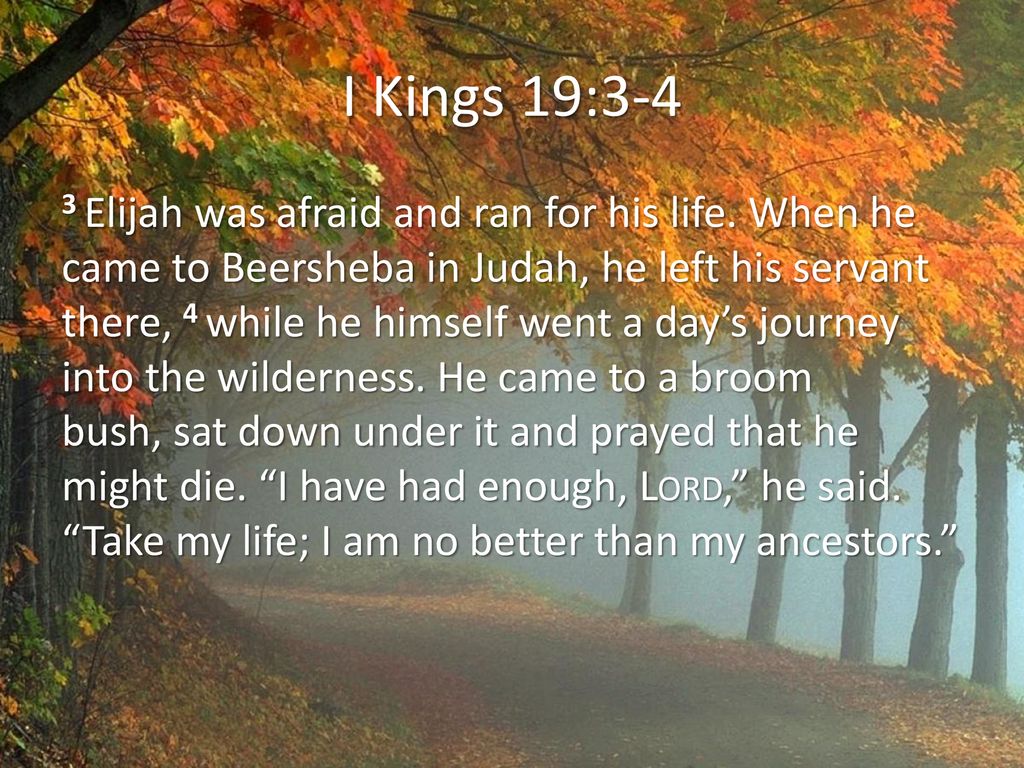God’s Presence on the Journey
SCRIPTURE READING — EXODUS 40:34-38
In all of the travels of the Israelites, whenever the cloud lifted from above the tabernacle, they would set out. . . .— Exodus 40:36
I had eaten the last of my peanut butter on the Appalachian Trail and needed more food. So at Rockfish Gap, I decided I would leave the trail and go into town to replenish.
That’s not how the Israelites made decisions during their wilderness journey. They waited for a signal. God had instructed his people to build a tabernacle, a large tent, to serve as a portable sanctuary for worship. At the tabernacle God would dwell in their midst, and the people could worship him there. God’s glory hovered over the tent, and whenever it lifted, they would set out and follow wherever God would lead them next.
The tabernacle in the wilderness pointed forward to the temple that would be built in Jerusalem many years later (1 Kings 6). What’s more, both the tabernacle and the temple pointed forward to another mark of God’s presence among his people. John 1:14 tells us that “the Word”—that is, Jesus—“became flesh and made his dwelling among us.” The original Greek text there says, more literally, that “the Word became flesh and pitched his tent among us, and we beheld his glory.” Jesus came to bring God’s glory in human flesh among his people, and now, through the Holy Spirit, he lives in our hearts and is present with us wherever we go. He calls us to serve others, and he promises never to leave or forsake us.
Jesus, you came to live among us. Help us to know your presence today and always, as you lead and guide us in our journey to serve you and others. Amen.
A Day’s Journey
SCRIPTURE READING — 1 KINGS 19:1-18
Elijah was afraid and ran for his life. When he came to Beersheba in Judah, he left his servant there, while he himself went a day’s journey into the wilderness. — 1 Kings 19:3-4
On a day’s hike to Whiskey Hollow, near Markham, Virginia, I clocked about 20 miles, the equivalent of a “day’s journey” in the Bible. Though worn out when I arrived, I was pleased to have put some distance behind me.
Elijah’s experience after a day’s journey was quite different. Entirely spent, he collapsed under a bush. He was physically, emotionally, and spiritually shattered. Before sinking into sleep, he pleaded with God, “I have had enough. . . . Take my life. . . .”
Elijah had just come from a fierce battle with the priests of Baal on Mount Carmel (1 Kings 18). Now he was fleeing for his life from the wicked King Ahab and Queen Jezebel. In response to Elijah’s utter exhaustion and desperation, God sent an angel to provide water and warm cakes. When Elijah finally revived, he walked another 40 days and nights to Mount Horeb. There God spoke to Elijah and met with him, telling him the plans he still had for Elijah and for others to do. God gave Elijah renewed hope for the future.
In our own lives, we too can count on God to meet and refresh us in our times of distress and collapse. In fact, God already has done that for us through Jesus, who offers us rest for our souls and salvation to new life (Matthew 11:28-30). We can trust him with every step we take.
Lord Jesus, in our times of desperation and need, renew and sustain us as we journey through this life. Amen.
Wrong Way
SCRIPTURE READING — PSALM 1:1-6
Blessed is the one who does not walk in step with the wicked. . . . — Psalm 1:1
One morning on my weeks-long hike of the Appalachian Trail, I started off in the wrong direction and walked some distance before I realized my mistake. So I turned around and headed back the right way. No harm done. But walking through life in the wrong direction would be quite another matter.
Psalm 1 warns about going the wrong way in life, by walking, standing, and sitting with the wicked. “But,” you might ask, “shouldn’t we befriend sinners, as Jesus did, out of God’s caring love?” Yes, of course. But if we “walk in step” with the wicked, that means going along in their direction, on their chosen way—not God’s. We are created to live in fellowship with God. When we walk with God, we flourish like trees “planted by streams of water,” strong and firmly rooted in the goodness and love of God, bearing good fruit that can help others taste and see the goodness of living for God.
People who reject and turn away from God, however, are lost. They lack a firm foundation and are easily blown away as they seek fleeting pleasures and alluring deceptions in this world.
How do we know we’re on the right path? We need to read, study, and reflect on God’s Word, taking it all to heart. Only in God’s Word and by his Spirit can we find the way to full life and flourishing.
Lord, you have given us your Son and your Word. Help us to read your Scriptures, treasure them in our hearts, and follow the path they set for us. Amen.
Walking in the Shadow of Death
SCRIPTURE READING — PSALM 23:1-6
Even though I walk through the darkest valley, I will fear no evil, for you are with me. . . . — Psalm 23:4
I went hiking solo on the Appalachian Trail. Before I left for this trip, some friends asked, “Is it safe to hike alone?” Yes, thankfully, it is. You do, however, need to be careful to avoid the companionship of ticks, those tiny arachnids that can make you very sick. And even if I am the only person traveling through a wilderness area, I know I am never alone.
In Psalm 23, God promises to protect his people in the many challenging, difficult circumstances of life. Chief among the promises here is the assurance of God’s presence. God promises to walk with us through green pastures and along babbling brooks when life’s pathways are clear and smooth. God also promises to be with us through thorny stretches, and even through “the darkest valley,” where we may face “the shadow of death,” as some translations put it. Those are paths that we tremble even to think about.
What assurance does God give of his protection? He promises, “I am with you.” This means that wherever we walk, and in whatever circumstances we find ourselves, we are never alone. Who is our Redeemer? He is Immanuel, which means “God with us.”
Psalm 23 doesn’t promise that our lives will be easy or even safe. But with the promise of God’s enduring presence in our lives, we can walk boldly with him as we seek to serve him wherever we are.
Lord, you have given us your presence through your Holy Spirit. Help us to trust and serve you. Amen.






Post a Comment
0Comments